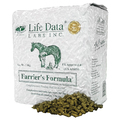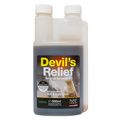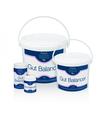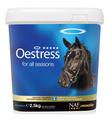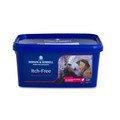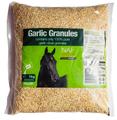Ensuring the well-being of our equine partners is crucial, and it's essential to grasp the steps needed to limit the spread of infection and disease. One significant aspect of safeguarding their health is understanding and implementing biosecurity measures. Biosecurity means taking proactive steps to keep diseases from spreading. By adhering to proper biosecurity measures, you can decrease the chances of your horse contracting an illness or transmitting it to others, safeguarding their health and preserving the activities you cherish.
Get prepared ahead of the showing & pony club camp season by familiarising yourself with equine event biosecurity. Travelling to equine events is common for equestrians, but maintaining biosecurity is crucial for your horse's health and preventing disease spread in the equine community. Consider postponing travel if your horse displays any signs of fever or lethargy. Ensure your horse is up-to-date with vaccinations and minimise direct contact with other horses whenever possible. It’s also important to ensure temporary stables are thoroughly cleaned and disinfected before use. Upon returning from an event, closely monitor your horse. Consider isolating them and conducting temperature checks twice daily as a precaution.
It's also imperative to uphold biosecurity measures at home to protect the health of your horses year-round. Here are some tips to help you prepare in case a horse in your yard gets sick:
-
Maintaining a clean environment is vital for your horses' health and preventing disease spread. Regularly use cleaning solutions and thoroughly clean before applying disinfectants. Focus on high-contamination areas like stable door latches to reduce disease risk.
-
To prevent disease spread, limit people handling sick horses and ensure thorough hand washing afterward. Use designated clothing during interactions to minimise contamination risk.
-
During illness outbreaks, restrict movement and isolate affected horses to prevent further spread. Contact your vet promptly at the first sign of worsening symptoms to manage and prevent outbreaks effectively.
Overall, implementing simple measures can effectively minimise the risk of disease transmission among horses. The following practices, though straightforward and cost-effective, are vital for safeguarding your horse's health and well-being. Firstly, regularly monitoring their temperature to establish their normal baseline is crucial for detecting any unusual changes promptly. Keeping your horse's flu vaccinations current is crucial to minimise any risk, and it’s best to avoid sharing equipment between horses as it helps to minimise the risk of transmission. Additionally, when you introduce new horses to your premises, it's important to isolate them from others for about three weeks, or as advised by your vet.
Ensuring biosecurity is essential for our horses' health and the overall equine community. By incorporating practices like regular monitoring, vaccinations, and careful handling, we can mitigate disease spread. Additionally, implementing measures such as proper stable management, minimising contact with sick horses, and restricting movement during outbreaks further strengthen our biosecurity efforts. Let's remain vigilant and proactive in safeguarding not only our own horses but also the broader equine community from the threats of disease.
Written by: Iffat

